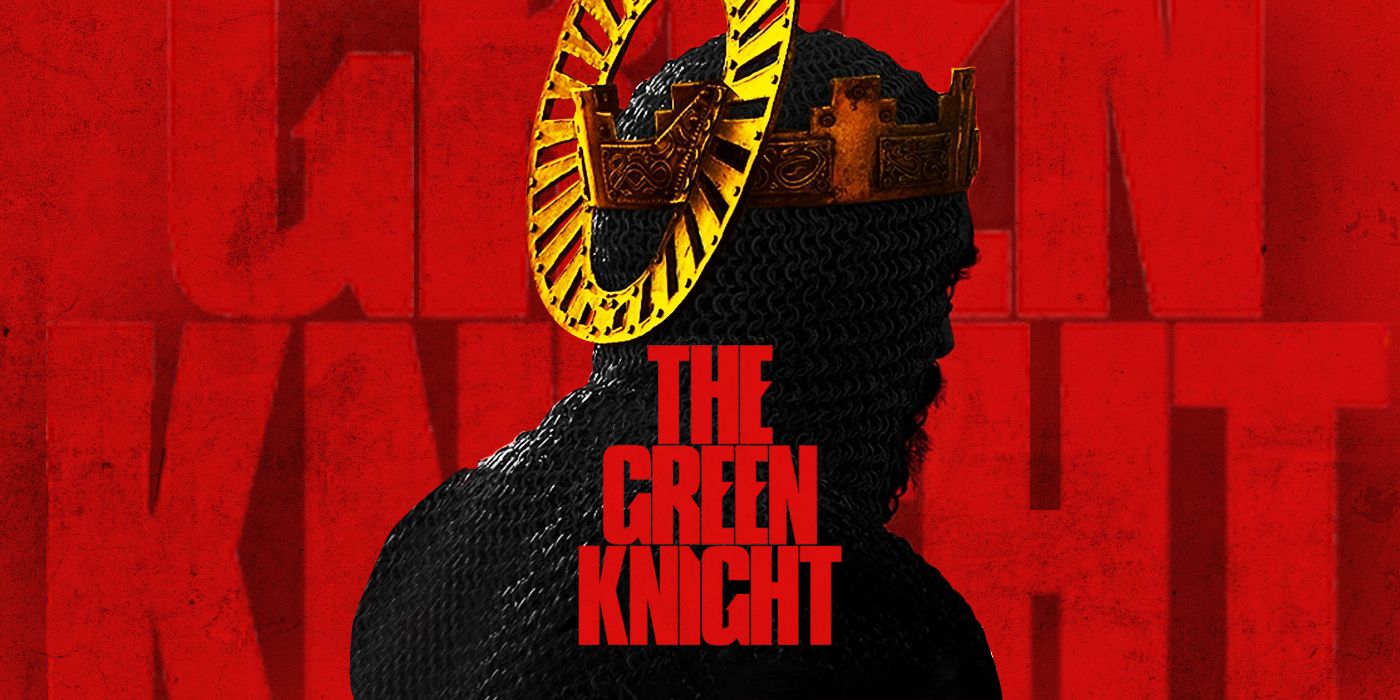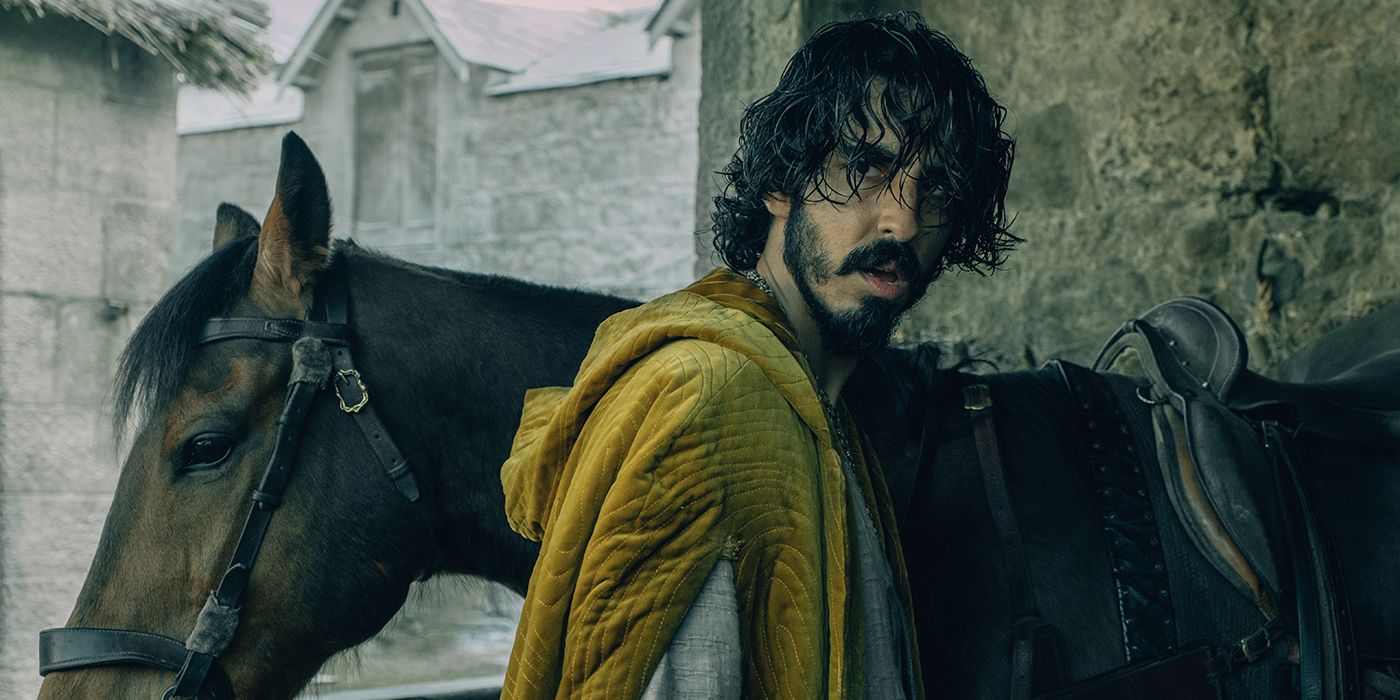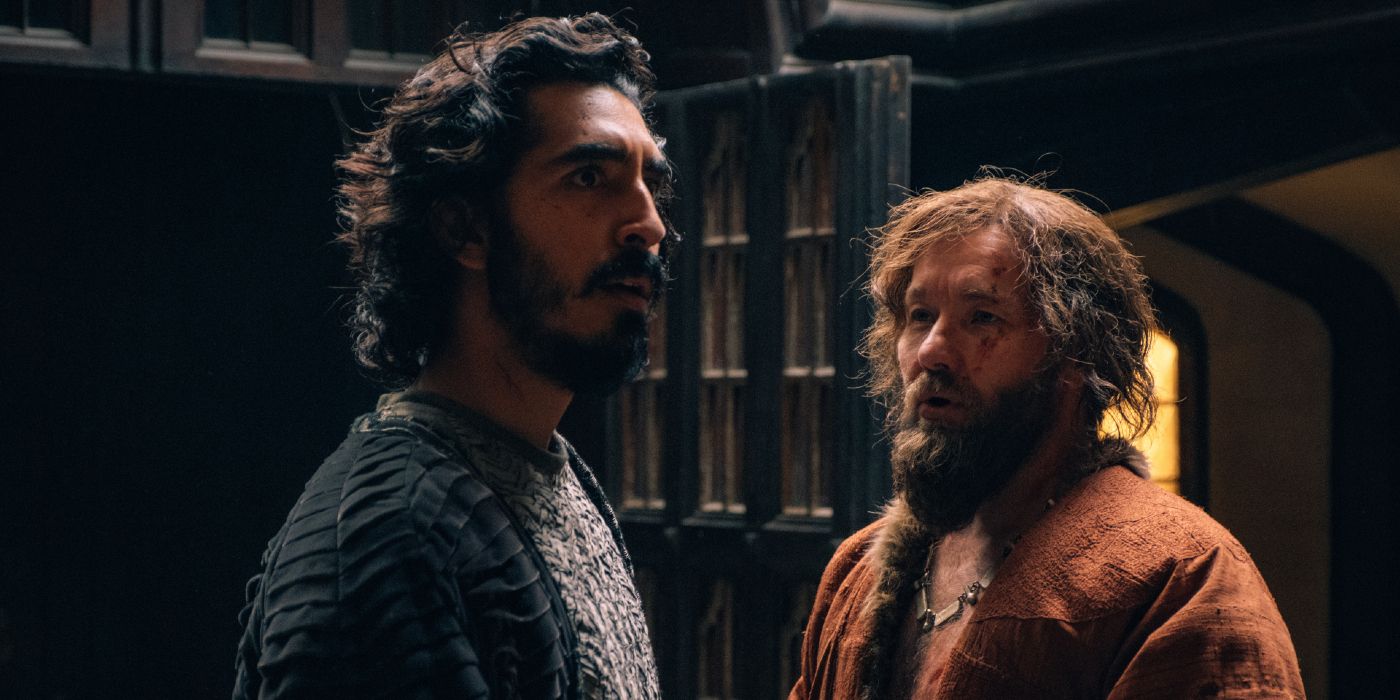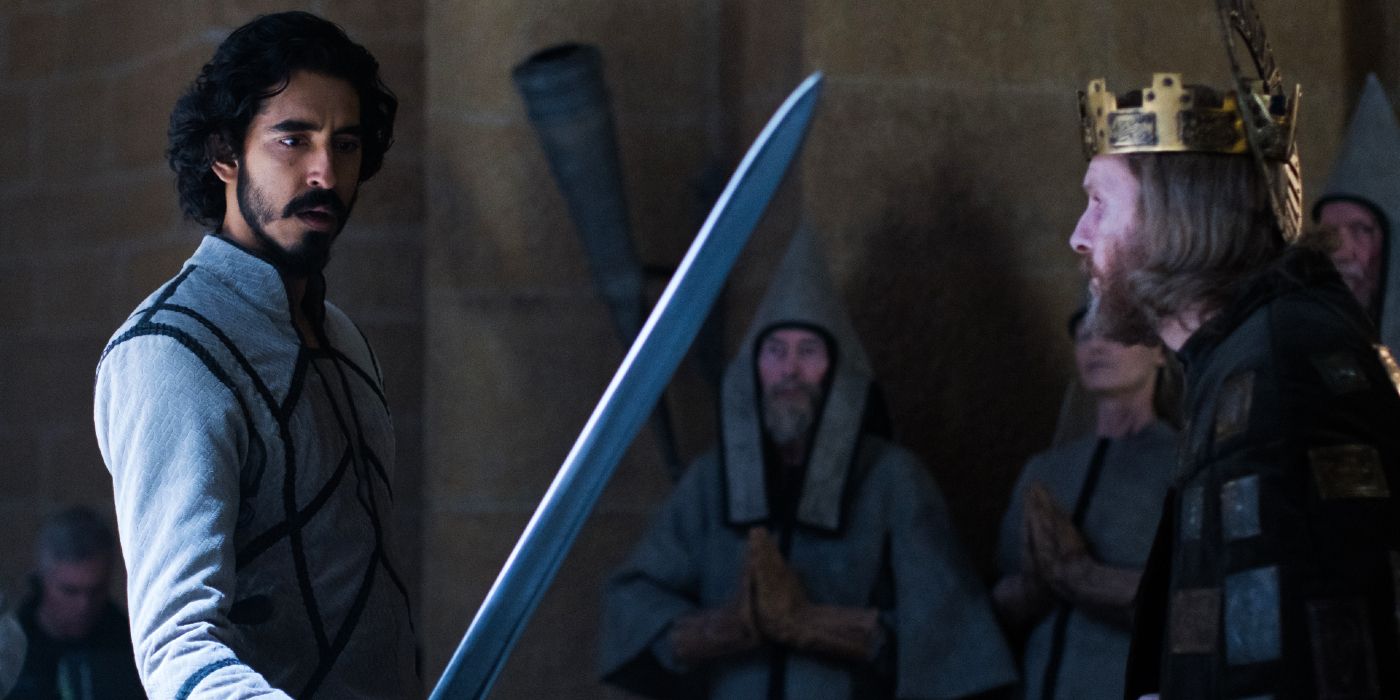Apart from an unquenchable need to see a spinoff film dedicated to Joel Edgerton’s swinger palace, the biggest impression David Lowery’s dark fantasy epic The Green Knight left on me was its flawed main character, Gawain (Dev Patel).
It feels like many modern blockbusters are reluctant to give their heroes any actual flaws for fear that audiences won’t be able to forgive them. Chris Pratt’s character in The Tomorrow War is a genius scientist/military veteran who knows everything about physics and time travel and can also kill aliens like a plague specifically designed to kill aliens. Because this is a time travel movie, we’re told that he will one day abandon his family after a string of career setbacks, but we don’t actually see him do anything wrong. All that selfishness is done by a hypothetical version of Pratt who will never exist if the good guys manage to defeat the aliens, which of course they do, so his likeability is never in question. The thriller Those Who Wish Me Dead casts Angelina Jolie as a burnout firefighter who blames herself for the deaths of three kids, but when we finally get to witness the incident in a flashback, we see that there was literally nothing she could have done to save them. She didn’t make a poor decision or show up drunk or anything interesting like that; the kids just kind of die because they were in the wrong place at the wrong time, and she isn’t at fault whatsoever.
Similarly, Infinite gives us a perpetually-reincarnating superhero in Mark Wahlberg, who is scraping by in his current life thanks to a criminal incident in his past that has made him unemployable. However, we quickly learn that Wahlberg’s “crime” was beating up a customer in his restaurant after the customer tried to sexually assault a server, otherwise known as “something nobody could ever possibly hold against you.” In F9, Vin Diesel’s Dom Torretto has been reduced to a glowering sage who is never in trouble and never does the wrong thing. He’s a bald Sphinx who drives bitchin’ muscle cars. And those are just the movies that came out within the last few months; if I tried to list every modern blockbuster featuring either a faultless hero or a “flawed” protagonist who isn’t really flawed at all, I would go blind in the attempt.
Some sort of flaw or shortcoming is necessary to give your main character something to overcome, which provides them with a clear path of growth that ultimately allows for a more satisfying and complete story. The character needs a challenge, and it isn’t always enough for that challenge to be something that can be punched in the face or roundhouse-kicked out of a skyscraper. Although sometimes your movie can have both – in addition to blasting Hans Gruber (Alan Rickman) straight out of the goddamn window, Die Hard’s John McClane (Bruce Willis) must also learn to be a more attentive husband and father. Before Chief Brody (Roy Scheider) can hunt down and destroy the shark in Jaws, he must first learn to stop being a blue-collar punching bag for the wealthy shark deniers of Amity Island.
Gawain is cut from the same cloth. Reimagined as a shiftless bum who spends most days blind drunk in a brothel, hiding from both the responsibilities and expectations that come from being the king’s nephew and only male heir, The Green Knight’s Gawain is a far cry from the chivalrous knight of Arthurian legend. He isn’t even a knight in this adaptation, and whenever pressed about his future at court by his quasi-girlfriend Essel (Alicia Vikander) or his mother (Sarita Choudhury), he moodily deflects the question. Like most of us at one stage of life or another, Gawain has no earthly idea what he wants to do with himself, but he knows he wants it to be awesome. However, as Gawain sits in his uncle’s hall, looking out at the sea of grizzled faces, he comments on the amount of blood they all must have spilled in the king’s name to earn their seats. It’s clear he likes the sound of being a knight but is less excited about actually doing the work to become one.
So, when the Green Knight strolls into Arthur’s court on Christmas Day and asks if anyone wants to play a fucked-up game he just invented, Gawain sees his chance to score some easy points with his uncle and accepts. The rules of the game require Gawain to land a single blow against the Green Knight; if he is successful in doing so, he must agree to let the Green Knight return the exact same blow in one year’s time. But Gawain is so eager to nab some cheap honor that he might as well have dollar signs for pupils, and rather than deal a glancing blow or even a scratch (which would have been perfectly acceptable according to the game’s weird dumb rules), he decides to chop the Knight’s head entirely off of his body. This is a Bad Choice™, the first of several that Gawain will make on his quest. You see, the Green Knight is more or less invincible, which anyone should have been able to tell just by looking at him. He stands back up, grabs his severed head, and says, “OK, maybe not what I would’ve done, but hey! See you next Christmas.” Appropriately, the story’s inciting incident is an impulsive, destructive decision made by a main character desperate to prove something to someone, although he’s not exactly clear on what or to whom.
When Gawain leaves on his quest to the Green Knight’s secret lair to get as good as he gave, he is regularly beset by challenges that test his courage and morality, and he doesn’t manage to totally nail a single one of them. He allows a fellow traveler to believe he is a knight, only to tearfully renounce this perceived knighthood when the traveler turns out to be an armed bandit who steals all his shit. Gawain helps a restless spirit (Erin Kellyman) retrieve her severed head from the bottom of a lake, but not before asking her, “What’s in it for me?” He stumbles through an obviously magic palace and takes advantage of the lord’s kindness for several days before having an awkward sexual encounter with the lord’s wife that literally stains his honor. Gawain is terrible at being a hero, but he’s trying his best; by the time he finally gets to the Green Chapel to accept the decapitation he bought with his own grasping selfishness, he’s learned a thing or two about what it means to be a knight. And we get to see him apply what he’s learned about courage and virtue to make his final choice, which ironically is the first time in the film he does anything completely right. That’s a pretty good story, if you ask me. Better than The Tomorrow War with its infallible action figure hero, anyway.
Gawain is a refreshing protagonist for modern audiences, if for no other reason than many of us need to believe that we can still do the right thing even if we’ve screwed up a bunch along the way. Also, it just makes for an infinitely more engaging story if our main character isn’t a flawless monolith of raditude who already possesses all the skills necessary to overcome any obstacle. It’s cool that Chris Pratt can talk to raptors and never makes any mistakes, but part of the reason we’re still talking about John McClane is because he was woefully unprepared for the events of Die Hard and skated through every sequence by the seat of his khakis. Similarly, Gawain crashes through The Green Knight making selfish choices without even the ghost of an idea of what the hell he is doing, and he (and we) come out all the better for it in the end.




